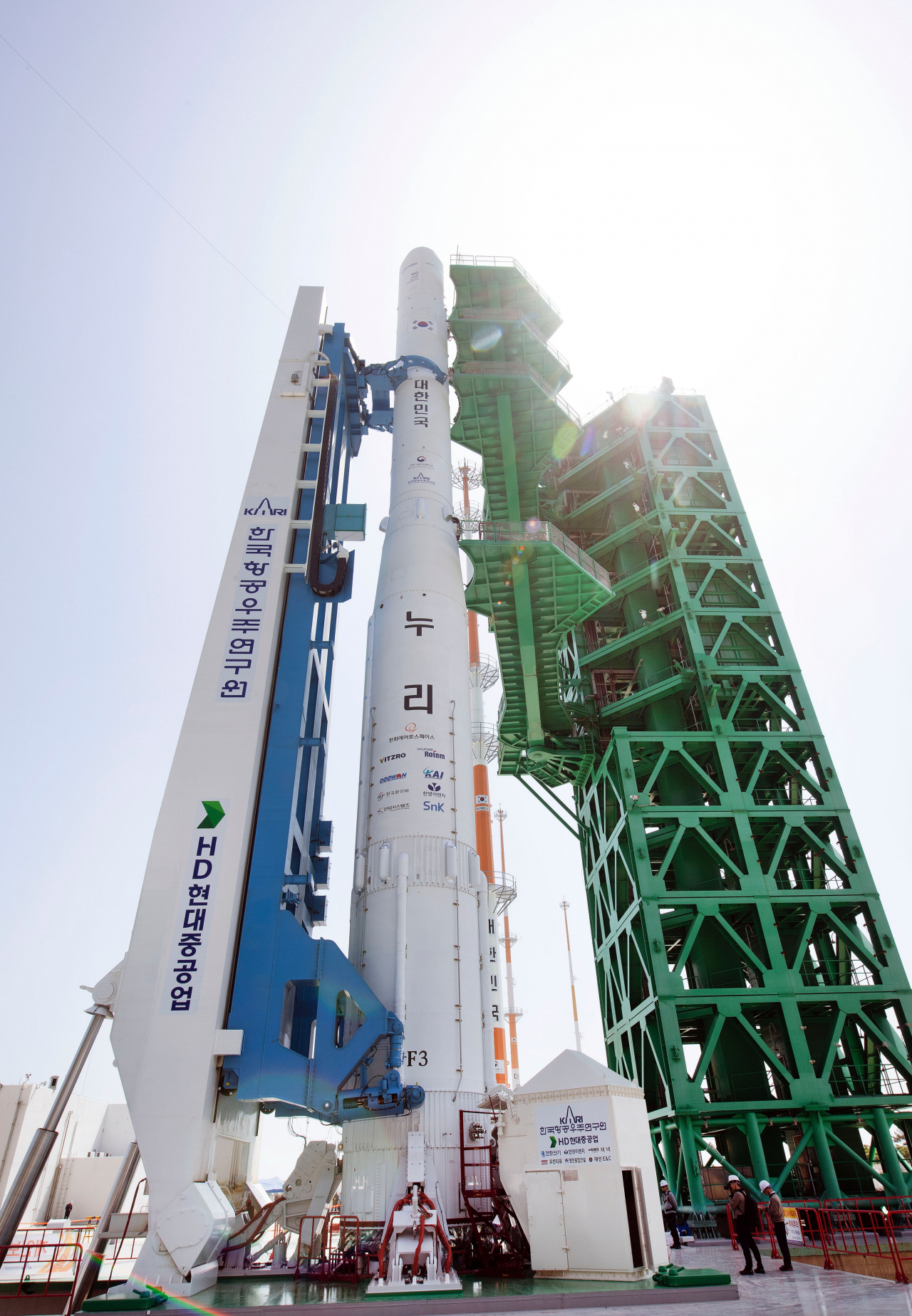Hanwha propels Nuri rocket project
Korea's No. 7 conglomerate seeks 3 more rocket launches through 2027
By Kan Hyeong-wooPublished : May 24, 2023 - 13:55

Hanwha Group, South Korea’s seventh-largest conglomerate, stands at the forefront of the country’s efforts to grow and nurture its space industry, as Hanwha Aerospace became the first system integration company to lead the launch of the homegrown Nuri rocket.
Hanwha Aerospace won the government bid in December to take charge of upgrading the Nuri rocket, also known as Korea Satellite Launch Vehicle-II, and launching it four times through 2027. The company signed a contract worth approximately 286 billion won ($220 million) with the state-run Korea Aerospace Research Institute.
With the responsibility of overseeing the assembly of the Nuri rocket and launch operations, Hanwha Aerospace has been gaining knowledge and expertise from working with KARI, which led all of the country’s space launch projects including the earlier Naro rocket. According to the company, however, there is still a lot to be done for Hanwha to take full control.
“Strictly speaking, (the project) is not led by the private sector at the moment. We developed core systems such as the engine, propulsion and position control systems. But KARI has supervised the overall process. Right now, we are in the learning phase. Once we get to the sixth launch, we will play a bigger role,” Lee Jun-won, senior vice president at Hanwha Aerospace, told The Korea Herald in an interview earlier this year.
Hanwha Aerospace is looking to win another government project to develop a next-generation satellite launch vehicle capable of launching heavier payloads than the Nuri rocket. Unlike the country’s past space projects led by KARI, the next-generation rocket project will see a private company taking the lead from the beginning.
Hanwha Group’s space vision took shape when it established the Space Hub, a conglomerate-wide council dedicated to developing space businesses, in March 2021. Kim Dong-kwan, the group’s vice chairman and the eldest son of Hanwha Group Chairman Kim Seung-youn, stands at the helm of the Space Hub.
Hanwha has actively bolstered its space portfolio, acquiring Satrec Initiative, Korea’s only satellite company with export sales, and investing in OneWeb, a UK firm specialized in connecting hundreds of low-Earth orbit satellites.
Over 300 local companies, including Hanwha Aerospace, participated in making the Nuri rocket, which successfully placed a dummy satellite into orbit in June last year to make S. Korea the seventh country in the world to have homegrown capability to develop and launch a satellite weighing 1 ton or more.
Following the Nuri rocket milestone, Korea also succeeded in launching and operating the country’s first lunar mission Danuri, also known as the Korea Pathfinder Lunar Orbiter, last year.
The series of successful space missions prompted the current Yoon Suk Yeol administration’s announcement of ambitious goals to land on the moon in 2032 and on Mars in 2045 when it marks the country’s 100th anniversary of liberation from Japanese colonization. The government underscored the importance of the space economy, signaling the country’s entry into the global space race.



















![[Today’s K-pop] Treasure to publish magazine for debut anniversary](http://res.heraldm.com/phpwas/restmb_idxmake.php?idx=642&simg=/content/image/2024/07/26/20240726050551_0.jpg&u=)